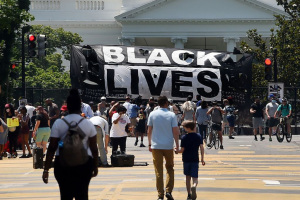Court Rules Use of GPS to Track Cheating Spouse Not Privacy Invasion
It’s a James Bond thing. Spying on your spouse just got easier after a New Jersey appellate court ruling declared this week that using a GPS tracking device to follow someone is not a violation of their privacy.
The case in question involves Kenneth Villanova, with the Gloucester County Sheriff’s Department. Villanova’s wife, suspicious about his strange behavior in 2007, hired private investigator Richard Leonard of Innovative Investigations Inc. to follow her husband after work hours.
However, he was unable to keep track of Villanova’s whereabouts.
Still concerned that her husband was cheating, she put a GPS tracking device in the glove compartment of their GMC Yukon-Denali, which they both owned but was primarily driven by Villanova, according to court documents.
Court documents also show that after two weeks of watching the GPS tracker, the investigator discovered Villanova leaving another woman’s house one night.
This is where the trouble started.
Villanova’s wife confronted him, but he turned around and sued her and the private investigator for invasion of privacy. The case ended up in the hands of the judges within the New Jersey appellate court system.
Geo-location technology is a hot topic these days. The world has the ability to use the power of GPS and other technologies right from the palm of our hands using a number of mobile devices. We can view maps, points of interest, play games, and even spend time finding out where are spouses are – if we suspect foul play.
Legal analysts say the real issue about using Global Positioning System technology stands in regards to the Fourth Amendment of the constitution – the right to privacy.
"Most Americans have their patriot flags flying high when it comes to privacy rights," said author Marisa O’Connor who wrote an opinion-based article on the subject recently.
She said lawmakers and investigators need to remember that the United States Justice System was founded on principles of freedom.
“GPS tracking devices can, no doubt, help gather evidence to put dangerous people behind bars,” she wrote.
“But Constitutional laws, such as the fourth amendment, were put in place to protect citizens from the powers of government. Privacy rights do not need to be sacrificed in order for law enforcement to do their jobs.”
Since 1971 William F. Mitchell, Jr., an author and investigator, documented the activities of thousands of married couples who commit adultery.
He recently compiled some statistics about marriages and divorce.
Among his findings included in the report shows 50 to 70 percent of all American marriages end in divorce and 50 to 75 percent of extramarital affairs take place with someone from the workplace.
“Within the last decade, incidents of adultery have risen to this alarming rate,” Mitchell said.
He also reported that some 60 to 70 percent of adultery victims are women and 30 to 40 percent of adultery victims are men.
“This number has increased dramatically over the past decade and a half, due in part to the increased presence of women in the workplace,” he said.
There are about 10 to 20 percent of adultery victims that claim to be Christians, and the cheating spouse usually is a regular attendant of church or religious activities, the report states.
On the brighter side of things, Mitchell’s findings show that 70 to 80 percent of couples who confess to infidelity recover and enjoy a stronger marriage in time.
The rest of the story about the rights to privacy case this week shows Villanova eventually dropped the claim against his wife in the divorce settlement.
He continued to pursue his lawsuit against the investigator.
Appellate Judges Joseph Lisa, Jack Sabatino and Carmen Alvarez said Villanova had no right to "expect privacy" because the GPS tracked his movements while he was driving on public streets.
Villanova claimed the tracking device invaded his privacy and caused him ”substantial and permanent emotional distress.”
However, the appellate court ruling shows he did not seek medical treatment or advice concerning the distress claim.
“There is no direct evidence in this record to establish that during approximately 40 days the GPS was in the glove compartment,” Lisa wrote in the ruling this week.
“The device captured a movement of the plaintiff moving into a secluded location that was not in public view, and, if so, that such information was passed along by Mrs. Villanova,” Lisa wrote in the ruling.
The Appellate Division decides about 6,500 to 7,000 appeals and approximately 7,500 motions each year.
Legal analysts are saying the judge's ruling has far-reaching privacy implications.
The U.S. Supreme Court will soon hear a case to determine whether or not law enforcement needs a warrant to install a GPS tracking device on a suspect's car.
The court will hear the case against Antoine Jones, a Washington, D.C., nightclub owner who was convicted for distributing drugs. A lower court overturned his conviction because it was based on data collected from a GPS tracker on his vehicle that police installed without a warrant.
The Obama administration is reportedly appealing that decision to maintain the legality of warrantless GPS tracking, which it argues is essential for effective law enforcement.
"The advent of satellite-based tracking technology has enabled the government to engage in 24-hour tracking of the movements of any private citizen for extended, indeed unlimited, periods of time," said Jones' lawyer, Stephen Leckar.
"If the Supreme Court rules against the suspect, it may set the stage for government arguments that real-time cell phone tracking doesn't need a warrant, either," according to legal analysts following the case.
The Justice Department argues that vehicular GPS tracking is no different than having an officer follow a suspect. The same argument could be extended to the individual.
Until recently, tracking people with Global Positioning System technology required purchasing expensive hardware and software.
Now, complete solutions and systems are available through cellular service providers.
"A partner is someone you can count on, someone you share your dreams and fears with, someone who respects and supports you," said author Natalie Bencivenga.
"Whatever their relationship may be, it certainly isn’t a partnership if one feels the need to ‘check up’ on the other, as though one were a naughty teenager."
She said by changing the role from loving spouse to jail warden, it is only a matter of time before that energy starts to interrupt and disturb a relationship.
The New Jersey Appellate Division will have the ruling online in the coming days:
Visit: http://www.judiciary.state.nj.us/opinions/index.htm



























